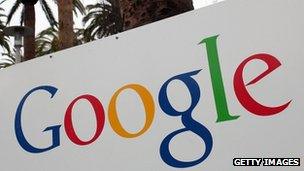Google kills off seven more products including Wave
- Published

Google develops many products, not all of which are hits with the public
Google has announced that it is dropping seven more products in an effort to simplify its range of services.
The out-of-season "spring clean" brings an end to services including Google Wave, Knol and Google Gears.
It is the third time that the US firm has announced a cull of several of its products at the same time after they had failed to take off.
Experts said the strategy might put off users from signing up to new services.
Google announced the move in its official blog., external
"We're in the process of shutting a number of products which haven't had the impact we'd hoped for, integrating others as features into our broader product efforts, and ending several which have shown us a different path forward," said Urs Holzle, Google's vice president of operations.
"Overall, our aim is to build a simpler, more intuitive, truly beautiful Google user experience," he added.
Wave goodbye
The seven latest products earmarked for the chop are as follows:
Google Wave - an attempt to combine email and instant messaging for real-time collaboration
Google Bookmarks List - a service which allowed users to share bookmarks with friends
Google Friends Connect - allowed webmasters to add social features to their sites by embedding a snippet of code
Google Gears - much-hyped effort to maintain web browser functionality when working offline
Google Search Timeline - a graph of historical query results
Knol - a Wikipedia-style project, which aimed to improve web content
Renewable Energy Cheaper than Coal - a project which aimed to find ways to improve solar power
Google had previously announced its plans to kill off some of the projects on the list.
It has now given details about when the switch-offs will occur. For example Wave will be retired in April, and Knol content will be taken offline in October.
Lessons
The diverse nature of the list illustrated how Google operated as a company, said Richard Edwards, principal analyst at research firm Ovum.
"Any company with the resources and number of brains that Google has will have ideas, only some of which will fly. Hitting the zeitgeist is tricky to plan or predict," he said.
The steady stream of innovations from the search giant and the open way it announced them had been a welcome change in a tech industry that had traditionally kept its cards close, said Mr Edwards.
But he warned that Google needed to be careful about how it announced new products in future.
"It can hype the bejesus out of new announcements and it can be difficult for people to pick out the substance from the hype," he said.
There were, he said, "lessons to be learned" from firms such as Apple which took a more measured approach, announcing just a handful of new products once or twice a year.
Focus
Some experts think that Google is streamlining in order to concentrate on its Facebook rival Google+.
The network gained 10 million users within the first 16 days after its private launch, and 40 million within the first 100 days, making it the fastest-growing social network in the history of the web.
But Mr Edwards was sceptical about how successful the service would be in the long-term.
"There is no likelihood of people flocking away from Facebook at the current time unless it commits some hideous faux pas on privacy," he said.
"Something may displace Facebook but I'm not sure it is likely to be Google+," he added.
- Published5 August 2010
- Published17 November 2011